Filter by
# Debug Box
/var/www/htdocs/pustaka-digital/lib/SearchEngine/SearchBiblioEngine.php:688 "Search Engine Debug 🔎 🪲"
Engine Type ⚙️: "SLiMS\SearchEngine\SearchBiblioEngine"
SQL ⚙️: array:2 [ "count" => "select count(sb.biblio_id) from search_biblio as sb where sb.opac_hide=0 and (sb.call_number LIKE :callnumber)" "query" => "select sb.biblio_id, sb.title, sb.author, sb.topic, sb.image, sb.isbn_issn, sb.publisher, sb.publish_place, sb.publish_year, sb.labels, sb.input_date, sb.edition, sb.collation, sb.series_title, sb.call_number from search_biblio as sb where sb.opac_hide=0 and (sb.call_number LIKE :callnumber) order by sb.last_update desc limit 10 offset 110" ]
Bind Value ⚒️: array:1 [ ":callnumber" => "4%" ]
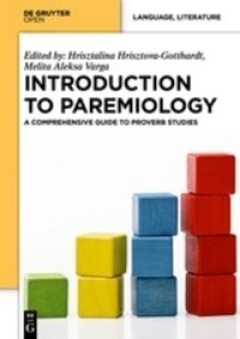
Introduction to paremiology : a comprehensive guide to proverb studies
This handbook introduces key elements of the philological research area called paremiology (the study of proverbs). It presents the main subject area as well as the current status of paremiological research. The basic notions, among others, include defining proverbs, main proverb features, origin, collecting and categorization of proverbs. Each chapter is written by a leading scholar-specialist…
- Edition
- -
- ISBN/ISSN
- 9783110410167
- Collation
- XIV, 368 p.
- Series Title
- -
- Call Number
- 415 INT i

Reconstructing syntax
During several decades, syntactic reconstruction has been more or less regarded as a bootless and an unsuccessful venture, not least due to the heavy criticism in the 1970s from scholars like Watkins, Jeffers, Lightfoot, etc. This fallacious view culminated in Lightfoot’s (2002: 625) conclusion: “[i]f somebody thinks that they can reconstruct grammars more successfully and in more widesprea…
- Edition
- -
- ISBN/ISSN
- 9789004392007
- Collation
- xii, 378p. : ill.
- Series Title
- -
- Call Number
- 415 REC r

Rhetorical agency: mind, meshwork, materiality, mobility
In recent accounts of rhetoric’s storied productivity, commentators have implied, along systematically Kantian lines, albeit with the occasional protestation, that agency must be coextensive with subjectivity. But is that all there is (to 2,500 years’ worth of hypothesizing about the ways in which communication might promote social change)? Les Belikian’s answer, drawing not only on tradi…
- Edition
- -
- ISBN/ISSN
- 9781947447240
- Collation
- 206 p.; 22 cm.
- Series Title
- -
- Call Number
- 410 BEL r
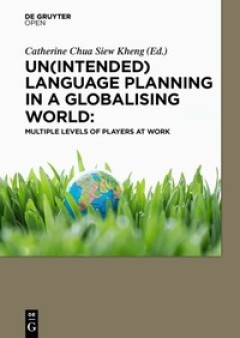
Un(intended) language planning in a globalising world : mutliple levels of pl…
This first book provides a comprehensive overview of the different levels of players who have been involved in both intended and unintended language planning and policy, and shows how they have impacted multilingual language use. Specifically, it looks at the roles of different ‘glo-national’ (global national) players in directing the choices of language use in various parts of the world. D…
- Edition
- -
- ISBN/ISSN
- 9783110518269
- Collation
- X, 312 p.
- Series Title
- -
- Call Number
- 400 CHU u
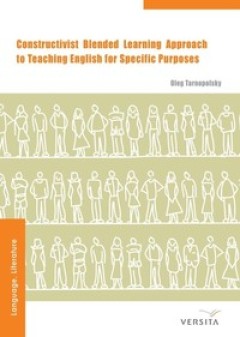
Constructivist blended learning approach : to teaching English for specific p…
This monograph analyzes an innovative approach to teaching English for Specific Purposes (ESP) in tertiary education. This "constructivist blended learning approach" is based on students "constructing" for themselves their own knowledge and professional communication skills in English by making extensive use of Internet sites in English, combining traditional in-class learning with in- and out-…
- Edition
- -
- ISBN/ISSN
- 9788376560014
- Collation
- VII, 256 p.
- Series Title
- -
- Call Number
- 410 TAR c

Formulaic language and new data : theoretical and methodological implications
The existence of formulaic patterns has been attested to all languages of the world. However, systematic research in this field has been focused on only a few European standard languages with a rich literary tradition and a high degree of written norm. It was on the basis of these data that the theoretical framework and methodological approaches were developed.The volume shifts this focus by ce…
- Edition
- -
- ISBN/ISSN
- 9783110669824
- Collation
- -
- Series Title
- Formelhafte Sprache / Formulaic Language, 3
- Call Number
- 430 FOR f
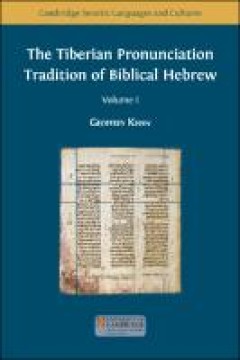
The Tiberian Pronunciation Tradition of Biblical Hebrew : volume 1
"These volumes represent the highest level of scholarship on what is arguably the most important tradition of Biblical Hebrew. Written by the leading scholar of the Tiberian Masoretic tradition, they offer a wealth of new data and revised analysis, and constitute a considerable advance on existing published scholarship. It should stand alongside Israel Yeivin’s ‘The Tiberian Masorah’ as a…
- Edition
- -
- ISBN/ISSN
- 9781783746774
- Collation
- XVI, 744 p.
- Series Title
- Cambridge Semitic Languages and Cultures
- Call Number
- 492.4 KHA t

Vocabulary development
Knowledge of word meanings is critical to success in reading. A reader cannot fully understand a text in which the meaning to a significant number of words is unknown. Vocabulary knowledge has long been correlated with proficiency in reading. Yet, national surveys of student vocabulary knowledge have demonstrated that student growth in vocabulary has been stagnant at best. This volume offers ne…
- Edition
- -
- ISBN/ISSN
- 9783038977353
- Collation
- 160 p.; 23 cm.
- Series Title
- -
- Call Number
- 401.81 VOC v
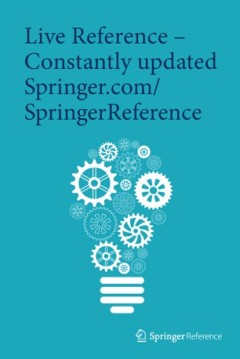
International handbook of modern lexis and lexicography
The chapter begins with a summary account of the Scots language and its vocabulary, before continuing with a history of lexicographical activity in Scots. Lexicons of Scots have been published since the end of the sixteenth century. In the eighteenth century, Scots lexicography developed its essentially descriptive nature, to gloss editions of medieval texts and new works by vernacular poets, a…
- Edition
- -
- ISBN/ISSN
- 9783642453694
- Collation
- -
- Series Title
- -
- Call Number
- 413.028 INT i

Corpora and discourse studies : integrating discourse and corpora
This edited collection brings together contemporary research that uses corpus linguistics to carry out discourse analysis. The book takes an inclusive view of the meaning of discourse, covering different text-types or modes of language, including discourse as both social practice and as ideology or representation.
- Edition
- -
- ISBN/ISSN
- 9781137431738
- Collation
- -
- Series Title
- -
- Call Number
- 401.41 COR c
 Computer Science, Information & General Works
Computer Science, Information & General Works  Philosophy & Psychology
Philosophy & Psychology  Religion
Religion  Social Sciences
Social Sciences  Language
Language  Pure Science
Pure Science  Applied Sciences
Applied Sciences  Art & Recreation
Art & Recreation  Literature
Literature  History & Geography
History & Geography